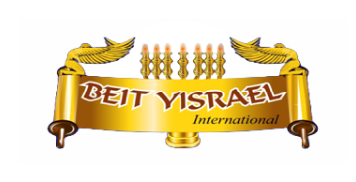Sabbath Eikev-In ikveta deMeshicha-on the Heels of Mashiach
Eikev “Consequence ” – All of these words share the root letters ayin-kof-vet;refer to the generation of the “Heels of Mashiach .”
–The entire process of the beginning of redemption that occurs with the heels of Mashiach and the heels of the Mashiach in the aspects of Son of Yosef which is the in gathering of the exiles
–A Man does not only live by bread, but also by the utterance of G-d’s mouth he lives


The forty-sixth reading from the Torah and the third reading from the book of Deuteronomy is named Ekev , The verse from Deuteronomy 7:12 says, “Then it shall come about, because (Eikev, you listen to these judgements and keep and do them, that the Adonai your G-d will keep with you His covenant and His loving kindness which He swore to your forefathers.” In fact, the name Jacob (Yaakov, ), whose name actually means “heel.” He was born holding on to Esau’s heel. However, in this portion, speaks of the rewards that will come to Israel on the heels of keeping G-d’s covenant and commandments.
Summary
Blessings for Obedience
The land of Israel and its fruit-"a land of wheat and barley, vines, figs and pomegranates." (Deut 8:8)


Grace after meals
Story of the Golden Calf
The second paragraph of Shema
Kveta d’meshicha-Heels of Messiah
The last generation of the Exile is called ikvata d’meshichah or the heels of Mashiach, since that was the generation that was expected to hear the footsteps of the Mashiach.
“Because (eikev) you will listen to these judgements… G-d will safeguard unto you the covenant and the kindness he swore to your fathers” (Dt 7:12).
Now that we have seen that the word “Eikev” is an allusion to the “Heels of Messiah”, we can expand on this verses’ interpretation. The text basically is saying that:
“When in the end (in the heel – meaning: during the birth-pangs of Messiah) you will listen to these judgments…. G-d will safeguard unto you the covenant and kindness he swore to your fathers”. This means, in the words of the commentators that “Prior to Messiah’s coming the Yisrael will return to G-d” (Ohr haTorah, Eikev).
Tzemach Tzedek sees it as a reference to ikveta d’meshicha, the generation of “the heels of Mashiach” (the last generation of the exile is called “the heels of Moshiach” by our sages because: a) they are the spiritually lowest generation, due to the “descent of the generations”; b) it is the generation in which the footsteps of Moshiach can already be heard). This is the generatipn that will “hearken to these laws,” as Maimonides writes: “The Torah has already promised that the people of Israel will return to G‑d at the end of their exile, and will be immediately redeemed.”
All the generations of history labored to bring Mashiach, and certainly their contribution is greater than ours. Nevertheless, we are the “generation of redemption,” since “a mitzvah is credited to the one who concludes the task.”-(The Lubavitcher Rebbe)
Moreover, understand this: in the acharit-hayamim (End days-footsteps of Mashiach) will come trying time -Brit Hadshah, II Tim 3.1-17






After Torah Reading:
Before Torah Reading:
Torah
Deuteronomy 7:12-11:25
Haftarah Portion
Isaiah 49:14-51:3
The Bircas Ha’Mazon (Grace After Meals):
“And you shall eat and be satisfied and bless Hashem your G-d for the good land which He has given you.” This verse implies that the Bircas Ha’Mazon isn’t merely a formal offering of gratitude for the meal we have eaten, but an acknowledgement that Hashem is the source of all things.
Our sages taught:
“It is forbidden to taste anything without saying a blessing over it” -Berakhot 35a.
By doing so, we acknowledge God as the source of all sustenance, and recognise that the earth and its bounties belong to him. Otherwise it would be similar to stealing food from the table of a king.
In Kabbalah and Hassidut teach that all food – as everything else in the world – contains a ‘spark’ of holiness exiled in the material realm, waiting to be redeemed. When we say a blessing before eating, and turn our meal into a Divine service, we elevate the physical substance of the food into holiness and reunite it with its Divine source.
When the human body hungers for a piece of physical bread, this is but a reflection of its soul’s craving for the “soul” of the bread (i.e. the spark of holiness), which the human being redeems by utilising the energy he or she derives from the food towards a Godly purpose. This is a mystical secret concealed in the verse (Deut 8:3): “A man does not only live by bread, but also by the utterance of G-d’s mouth he lives” (cf. Tanya chapter 7).
Blessing:
Barukh Atah Adonai, Eloqeinu Melekh haOlam…
– Blessed art thou Adonai, our G-d, King of the World…
Note: Remember to answer Amen immediately after hearing a blessing being concluded by another person (Not after your own blessing; cf. Berakhot 45b).
MEALS WITH BREAD
Before meals accompanied with bread we are expected to perform a ritual hand-washing (Netilat Yadaim). Since it is a Mitzvah d’Rabanan it is recited as a ‘commandment’ blessing.
When performing a commandment that starts with:
Barukh Atah Adonai, Eloqeinu Melekh haOlam Asher Qidishanu beMitzvotaiv Vetzivanu al…… – Blessed art thou Adonai, our G-d, King of the World Who has consecrated us with his commandments and has commanded us concerning….
In the case of hand-washing we simply say “hand-washing” in Hebrew – Netilat Yadaim.
So the blessing is:
Barukh Atah Adonai, Eloqeinu Melekh haOlam Asher Qidishanu beMitzvotaiv Vetzivanu al Netilat-Yadaim
Blessed art thou Adonai, our God, King of the World Who has consecrated us with his commandments and has commanded us concerning the ritual hand-washing.
When eating with bread, you break the bread, make a blessing over it, then eat a portion, and then share with the other members (cf. Berakhot 47a). For the blessing over bread – which is called haMotzi (who brings forth) you say:
Barukh Atah Adonai, Eloqeinu Melekh haOlam haMotzi Lekhem min haAretz.
Blessed art thou Adonai, our God, King of the World who brings forth Bread [Lekhem] from the earth [haAretz].
MEALS WITHOUT BREAD:
As stated above, desserts and wine have their own blessing. When eating food outside of a bread-based meal, individual food types receive their own blessing before and after eating. We say that G-d is the one who creates them (i.e. the Boreh). They can be catalogued as follows:
1– grain based food that is not bread (such as cakes, pasta, crackers, pastries, cereals, and other grain products). It is called Mezonot.
– the fruit of the vine (Wine or grape juice). The word “fruit” in Hebrew is Pri. The fruit of the vine is Pri haGafen.
– the fruit from the ground (this refers to vegetables, legumes, peanuts, and fruits that grow close to the ground such as bananas, melons, pineapples… etc). In Hebrew, fruit from the ground is Pri haAdamah. Adamah (ground) is where Adam got his name from.
– the fruit from the tree (such as apples, most nuts, peaches, oranges, figs… etc). The fruit of the tree is called: Pri ha’Etz.
– the food that does not fall into the previous categories (this includes animal derived products [such as meat or eggs], liquids that are not wine [including water], mushrooms, candy.. etc). For this kind of food we say that all of them came to be by G-d’s word [bi’Dvaro].
So this is the formula you have to remember (cf. Mishna Berakhot 6:1):
Introduction: Barukh Atah Adonai Eloqeinu Melekh haOlam
Bread: haMotzi Lekhem min haAretz (who brings forth bread from the earth).
Grain based: Boreh Minei Mezonot (who creates various kinds of sustenance).
Wine: Boreh Pri haGafen (who creates the fruit of the vine).
Fruit from the ground: Boreh Pri haAdamah (who creates the fruit of the ground).
Fruit from the tree: Boreh Pri ha’Etz (who creates the fruit of the tree).
Beverage: sheHaKol Nihyah bi’Dvaro (by whose word everything came to be).
What is the blessing for unclean food (i.e. food that is not permitted in the Torah)?
You cannot recite a blessing If you eat Treif (non-kosher food, such as: cat, dog, pork, shrimp, shark, crab, octopus, rodents, reptiles, insects (except the grasshopper and the locust) or blood). If an Israel eats these things he actually sins, so the blessing would be a curse.
Note: For the rules concerning unclean animals check Leviticus 11:1-47, 17:13; Deuteronomy 14:1-20; Mishna Hullin 3:8, Gemara Hullin 59a-b, 62a-63b, 67a-b; Avoda Zara 39b-40a.
Blessing for Rice:
Rice presents some difficulties. If it becomes one mass when cooked or transformed into bread, it requires a mezonot blessing. But if it maintains its form, hallakhists are not sure whether rice is what the Talmudists call: Dokhen, or what they call Orez (cf. Berakhot 27a, Tosefta Berakhot 37a). When we are not sure which category an item belongs to, we recite the generic blessing (i.e. SheHaKol). There are so many communities that use SheHaKol for rice.
It is more than likely that Rice is ‘Orez’ which sounds like the Spanish for rice (arroz) [cf. Mishna Berurah 208:25], but the opinions vary, some saying that the proper blessing for rice is Mezonot, and others saying it should be ha’Adamah (cf. the Rosh on Berakhot 6:8 vs Mishna Berura).
In order to avoid the dilemma, one can choose to eat it in a bread-based meal, thus using the haMotzi (cf. Alter Rebbe, seder birkat haNehenin 1:11).
Yeshua Tzaddik made the Brakhah:
He recited the Halachic blessings over Matzah and wine when he gave thanks at meals -Brit Hadshah, Luke 22:19-20). This is, again, elements of Oral Torah.
Also, taking a piece of Matzah, he made the b’rakhah,……..-Brit Hadshah Luke 22:19-20
This week’s haftarah Portion:
But Zion said, “HaShem has forsaken me, and my L-rd has forgotten me.” “Can a woman forget her nursing child, and not have compassion on the son of her womb? Surely they may forget, Yet I will not forget you. See, I have inscribed you on the palms of My hands; your walls are continually before Me… as I live,” says HaShem.-Isaiah 49:14-16; 18b


Shabbat Shalom- Gaddi Efrayim(President) - Beit Yisrael International


Aaron Blessings: Numbers 6:24–26
Yevarechecha AdonaiVe'yishmerecha. Ya'er Adonai panayv eylecha vi'chuneka. Yissa Adonai panayv eylecha ve'yaseym lecha shalom.
